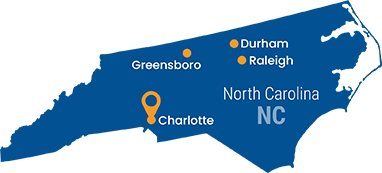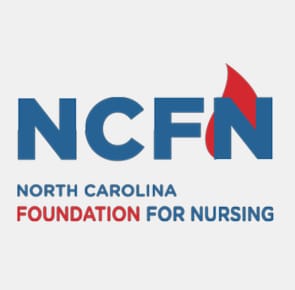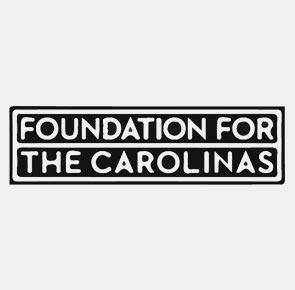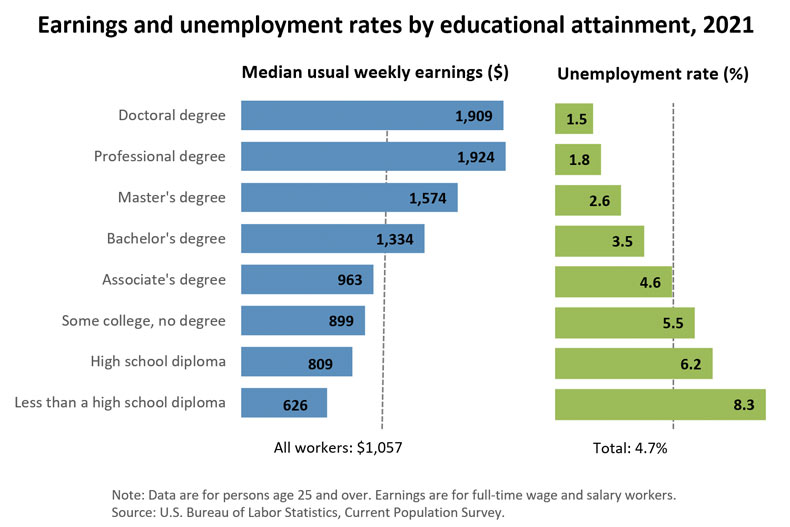University Headquarters (HQ) is an industry-leading, independent educational organization that provides independent college rankings using a proprietary formula to create first class unbiased rankings. The team at University HQ strives to provide accurate and trustworthy rankings that highlights the best programs in North Carolina.
Compare Popular Online North Carolina Programs
North Carolina is home to several high-quality schools, both public and private. Names like Duke University and the University of North Carolina are probably the best-known schools in the state, but NC boasts a wide array of schools from small liberal arts colleges to NC State, the largest university in the Carolinas.

What are the most popular bachelor's degrees offered in North Carolina?
While the state’s private colleges are a significant investment for those who don’t have federal funding or scholarships, NC’s public universities promise a quality education for less than $10,000 per year.
The most popular bachelor’s degrees in North Carolina are similar to the most popular bachelor’s degrees across the country. Students top picks include majors such as biology, business administration, and psychology, as well as computer science. Here are the top five degrees:
How Much Can You Make by Having a Degree in North Carolina
In general, the higher the degree, the greater the earning potential. It’s important to remember that this isn’t a hard and fast rule. Some fields, like marketing or computer programming, allow you to advance in your career without a master’s degree. Others, like psychology, require a master’s minimum, as your point of entry. Still, getting a bachelor’s degree, or even an associate can help you earn much more than you would with only a high school diploma.
According to data PayScale, bachelor’s degree holders have an average income of about $58,000 per year. Degree type makes a difference; the site reported that those with a Bachelor of Science earned $63,000 on average, compared to those with a Bachelor of Arts who earned about $53,000 on average.
Those figures are likely skewed a bit, as high-paying technical occupations like engineering and computer science majors earn BS degrees. BA graduates span a range of majors, including some sectors where it may be harder to find employment. Associate degree holders earn about $48,000 per year.
Those with a high school diploma, or GED only, are likely to earn considerably less. The BLS reports the median weekly income for those without any formal education credential can expect to make roughly $688 per week.
Education Level & National Average Median Compensation
| NO FORMAL EDUCATION | HIGH SCHOOL DIPLOMA | ASSOCIATE DEGREE | BACHELOR’S DEGREE | MASTER’S DEGREE | DOCTORAL DEGREE |
|---|---|---|---|---|---|
| $36,816* | $46,748* | $55,016* | $77,636* | $90,324* | $109,668* |
Most Popular Degrees and Careers in North Carolina
Based on our look at the top majors, as compared with the state’s job market, healthcare is likely to provide the best return on investment for students, particularly if they choose to attend medical school. Nurses, too, are always in demand, and stand to make a relatively decent salary. They can choose to later become a nurse practitioner or educator to boost earning potential and open up more job opportunities.
The top paying job in the state is as an internist, but those who pursue dentistry, psychology, and business or marketing will graduate in a good place as well.
Beyond these trends, students interested in computer programming, software development, or engineering stand to see some of the highest salaries straight out of college. Below, we’ll look at some of the top careers available by field of study.
Top Biology Careers and Salaries
| CAREER NAME | NUMBER OF JOBS | AVERAGE ANNUAL SALARY |
|---|---|---|
| Microbiologist | 410 | $62,980 |
| Biological Scientist | 1,270 | $88,590 |
| Biological technician | 2,240 | $45,640 |
| Soil and Plant Scientist | 710 | $60,590 |
- Microbiologist:
Microbiologists typically work in a lab setting, identifying and isolating organisms that can cause disease. They also look at the growth and development of microscopic organisms like bacteria, fungi, or algae. While many microbiologists work in a research setting, others work in hospitals, preparing cultures and identifying and confirming medical diagnoses. - Biological Scientist:
Biological scientists can work in a variety of fields from ecology and marine biology to biochemistry or zoology. Scientists collect and analyze data, conduct experiments, and present their findings. Biologists might work in a hospital, a food manufacturer, or research facility. - Biological Technician:
Biological technicians work in a support role helping biologists run experiments and analyze their findings. An entry-level job for aspiring biologists, technicians can find work in a variety of settings; hospitals, labs, or the private sector. - Soil and Plant Scientist:
A soil and plant scientist specializes in studying crops and agricultural plants. They’ll look at the chemical, biological, and physical makeup of soils, as well as conduct research aimed at controlling pests and improving crop yields.
Top Business Administration Careers and Salaries
| CAREER NAME | NUMBER OF JOBS | AVERAGE ANNUAL SALARY |
|---|---|---|
| Financial Managers | 16,680 | $150,140 |
| Operations Managers | 57,480 | $128,390 |
| Human Resources Specialists | 19,070 | $65,970 |
| Accountants | 33,750 | $78,500 |
| Management Analysts | 17,600 | $98,020 |
- Financial Manager:
Financial managers aim to improve an organization’s economic well-being. They’ll spend a good deal of time compiling reports, reviewing historical data, and analyzing markets. This allows them to provide informed guidance to businesses to develop a financial strategy, mitigate risk, and plan for significant changes like expansions and acquisitions. - Operations Manager:
Operations managers are part of a management team that oversees internal processes such as production and HR, administration, and more. The operations manager works to analyze and improve quality, efficiency, and productivity; often creating and implementing procedures that set the tone for success. This professional must be exceptionally organized and can multitask. - Human Resources Specialist:
Human resources specialists often focus on a specific area within the human resources umbrella. That might be compensation, benefits, employee assistance, training, or recruitment, though the role varies by employer. - Accountant:
Accountants collect information that allows them to summarize a company or client’s financial status. They’ll spend their days compiling profit and loss statements, balance sheets, reconciling bank accounts, and maintaining account controls. Ultimately, accountants keep track of money going in and out and may recommend policies and procedures that help organizations better manage their money. - Management Analyst:
Management analysts, or consultants, work with companies to propose solutions that enable them to become more profitable and productive. This person evaluates the inner workings of a company, analyzes data, and identifies areas where organizations can improve. They may also help management implement new policies and procedures or train employees on new initiatives. - Business Administrator
- Business Careers
- Business Manager
- Economist
- Entrepreneur
- Financial Analyst
- Hospitality Manager
- Human Resources Manager
- International Business Specialist
- Marketing Manager
- Organizational Leader
- Project Manager
- Supply Chain Managers
Top Healthcare Careers and Salaries
| CAREER NAME | NUMBER OF JOBS | AVERAGE ANNUAL SALARY |
|---|---|---|
| Registered Nurse | 99,960 | $66,440 |
| Physician | 13,380 | $198,040 |
| Physical Therapist | 6,310 | $88,020 |
| Nursing Assistant | 56,780 | $26,540 |
| Home Health Aide | 30,040 | $21,120 |
- Registered Nurse:
Nursing is always in demand, both in North Carolina and across the country. RNs work in medical clinics, hospitals, and other medical facilities, with their primary focus on promoting patient health. Nurses assess health problems and implement plans for care. They advise patients on disease prevention and care, and administer care to the ill, disabled, or injured. - Physician:
Once you’re out in the working world, you’ll diagnose patients through routine checkups and exams, monitor conditions and interpret test results. Salaries range depending on specialization. A general physician, the doctor you’d visit for regular physical exams earn on average, around $140,000 per year, while doctors working in a specialized field can expect to make more. - Physical Therapist:
Physical therapists help patients recover from injuries or medical conditions ranging from broken bones and back pain to strokes and disabilities. PTs can work in a variety of settings: hospitals, outpatient facilities, or in private practice. - Nursing Assistant:
Nursing assistants work in a support role in a range of healthcare settings. Typically, they will work under the supervision of a registered nurse and help patients with bathing, dressing, and tending to wounds. Nursing assistants don’t need a bachelor’s degree, but most employers require employees to hold a CNA credential. CNA training generally takes about six months to complete. - Home Health Aide:
Home health aides are high in demand in NC and beyond. Home health aides take care of the elderly or disabled and check vitals, help them perform basic activities, change linens, and make sure patients’ quarters are clean and safe. While this role is an entry-level position, many certified aides go on to become nurses. - Healthcare Administrator:
The role of a healthcare administrator is to ensure that a healthcare facility runs smoothly and efficiently by making sure they have all the necessary resources and policies in place. - Healthcare Manager
Top Computer Science Careers and Salaries
| CAREER NAME | NUMBER OF JOBS | AVERAGE ANNUAL SALARY |
|---|---|---|
| Software Developer | 30,580 | $103,280 |
| Database Administrator | 2,730 | $89,120 |
| Computer Systems Analyst | 26,050 | $94,330 |
| Web Developer | 3,530 | $73,610 |
| Computer Programmer | 5,360 | $94,700 |
- Software Developer:
Software developers work to create software programs that allow users to perform a set of tasks on computers, smartphones, and other devices. This job involves writing code, developing an application, testing, and maintaining software. Because the job is all about the holistic view, software developers must have a combination of soft skills like creativity, as well as hard skills like programming, debugging, and an understanding of programming languages. - Database Administrator:
Database administrators are IT professionals that make sure an organization’s database is working properly. In this role, administrators aim to keep company information accessible and secure. Typical tasks include troubleshooting database issues, monitoring system performance, backing up systems, and working to ensure cloud-based data is protected. - Computer Systems Analyst:
Computer systems analysts study an organization’s set of computer systems and procedures, looking for problems or areas that could be improved. Analysts work with managers to set goals for IT performance, weigh costs and benefits of new solutions, and select the best hardware and software for the job. - Web Developer:
Web developers create the backbone of the website, making sure that everything that “goes on top” of the initial framework enables users to access the information they need. Web developers test and document software powering websites, and they work alongside other designers, content developers, and product managers. Additionally, they write the code that creates web pages, data bases, and other website components. - Computer Programmer:
A computer programmer writes code, designs software programs, and debugs and maintains code related to a range of computer systems. Computer programmers must have an in-depth knowledge of several programming languages like Java, C++, JavaScript, and more. - Cyber Security Analyst
- Computer Science Careers
- Database Administrator
- Information Technology Specialist
- Web Developer
Top Engineering Careers and Salaries
| CAREER NAME | NUMBER OF JOBS | AVERAGE ANNUAL SALARY |
|---|---|---|
| Civil Engineer | 10,520 | $88,470 |
| Industrial Engineer | 9,340 | $86,240 |
| Electrical Engineer | 4,830 | $98,680 |
| Mechanical Engineer | 8,970 | $86,260 |
- Civil Engineer:
Civil engineers design, plan, and supervise construction projects as well as public improvement efforts like the repair and maintenance of railways, tunnels, roads, and bridges. Often civil engineers work in the public sector, solving problems aimed at improving safety within a community. Others work in private construction or design firms. - Industrial Engineer:
Industrial engineers often work in a manufacturing setting, solving problems that aim to reduce waste and increase efficiency. This person designs, develops, and tests systems for managing industrial processes covering several areas from human work factors to logistics, quality control, and energy use. - Electrical Engineer:
Electrical engineers evaluate electrical components and products, solve problems, and test equipment. This person must have a firm grasp on physics and math as they apply to electricity. - Mechanical Engineer:
Mechanical engineers design machines like escalators, air conditioning systems, engines or generators, and solve problems related to these machines. They also install, test, and monitor equipment and make repairs and improvements if needed. - Software Engineer
Additional Careers in North Carolina
The top occupations with the highest forecasted growth rate in North Carolina
North Carolina’s job prospects reflect the changes we’ve seen on a national and global level. Jobs in the healthcare sector are on the rise, as are those with a focus on data. The state is expected to add over 380,000 jobs between the years 2017 and 2026, and job growth is holding steady at an average .89%, which is higher than the national average of .66%.
North Carolina’s healthcare industry is the largest industry, on track to contribute roughly 93,000 new jobs by 2026. According to BLS data, nearly all of the state’s highest paying jobs all fall into the healthcare category. The exceptions are chief executives and marketing managers. Behind healthcare, professional, scientific, and technical services jobs are expected to add 37,000 new jobs within that same time frame.
The fastest growing jobs in North Carolina are in healthcare and construction. Nurses, of course, top the list, but also jobs like home health aides and other support roles within the healthcare space. It’s important to note that these support roles don’t offer much in the way of salary. As such, it might be worthwhile to approach these careers as a stepping stone to earning a bachelor’s degree. For example, a home healthcare aide earns their certification from a community college. If they earn that credential at an accredited institution, those credits can transfer to a four-year institution.
| Occupation | percentage growth rate |
|---|---|
| Social assistance | 20.87% |
| Ambulatory Healthcare Services | 20.72% |
| Healthcare and Social Assistance | 16.08% |
| Professional, Scientific, and Technical Services | 15.36% |
| Securities, Commodities, and Other Financial Investments | 18.74% |
| Publishing Industries, not internet | 20.86% |
| Construction | 16.14% |
| Professional and Business Services | 13.26% |
Top 25 Best Associate Degree Programs in North Carolina
Beaufort County Community College
Score: 79.92
- Undergraduate Tuition
- In-State: $2,540
- Out-of-State: $8,684
- Net Price: $7,279
- Acceptance Rate: 100%
- Retention Rate: 67%
- Graduation Rate: 45%
- Total Enrollment: 1,741
- Undergrad Students: 1,741
- Graduate Students: N/A
- Grads Salary: $45,900
- Student-to-faculty: 10:1
Wilkes Community College
Score: 73.74
- Undergraduate Tuition
- In-State: $2,572
- Out-of-State: $8,716
- Net Price: $3,471
- Acceptance Rate: 100%
- Retention Rate: 66%
- Graduation Rate: 55%
- Total Enrollment: 2,321
- Undergrad Students: 2,321
- Graduate Students: N/A
- Grads Salary: $31,600
- Student-to-faculty: 7:1
McDowell Technical Community College
Score: 72.17
- Undergraduate Tuition
- In-State: $1,958
- Out-of-State: $6,566
- Net Price: $2,715
- Acceptance Rate: 100%
- Retention Rate: 59%
- Graduation Rate: 45%
- Total Enrollment: 1,100
- Undergrad Students: 1,100
- Graduate Students: N/A
- Grads Salary: $34,500
- Student-to-faculty: 7:1
Isothermal Community College
Score: 71.51
- Undergraduate Tuition
- In-State: $2,030
- Out-of-State: $6,638
- Net Price: $6,756
- Acceptance Rate: 100%
- Retention Rate: 69%
- Graduation Rate: 53%
- Total Enrollment: 1,876
- Undergrad Students: 1,876
- Graduate Students: N/A
- Grads Salary: $32,600
- Student-to-faculty: 11:1
Wayne Community College
Score: 70.28
- Undergraduate Tuition
- In-State: $2,524
- Out-of-State: $8,668
- Net Price: $4,694
- Acceptance Rate: 100%
- Retention Rate: 80%
- Graduation Rate: 49%
- Total Enrollment: 2,732
- Undergrad Students: 2,732
- Graduate Students: N/A
- Grads Salary: $30,300
- Student-to-faculty: 12:1
Gaston College
Score: 69.81
- Undergraduate Tuition
- In-State: $3,186
- Out-of-State: $9,330
- Net Price: $4,103
- Acceptance Rate: 100%
- Retention Rate: 75%
- Graduation Rate: 43%
- Total Enrollment: 5,558
- Undergrad Students: 5,558
- Graduate Students: N/A
- Grads Salary: $32,900
- Student-to-faculty: 13:1
Roanoke-Chowan Community College
Score: 68.36
- Undergraduate Tuition
- In-State: $2,642
- Out-of-State: $8,786
- Net Price: $8,538
- Acceptance Rate: 100%
- Retention Rate: 73%
- Graduation Rate: 47%
- Total Enrollment: 569
- Undergrad Students: 569
- Graduate Students: N/A
- Grads Salary: $32,000
- Student-to-faculty: 11:1
Edgecombe Community College
Score: 67.65
- Undergraduate Tuition
- In-State: $2,640
- Out-of-State: $8,784
- Net Price: $5,996
- Acceptance Rate: 100%
- Retention Rate: 74%
- Graduation Rate: 28%
- Total Enrollment: 1,313
- Undergrad Students: 1,313
- Graduate Students: N/A
- Grads Salary: $37,100
- Student-to-faculty: 10:1
Blue Ridge Community College-Flat Rock
Score: 67.17
- Undergraduate Tuition
- In-State: $2,660
- Out-of-State: $8,804
- Net Price: $7,677
- Acceptance Rate: 100%
- Retention Rate: 69%
- Graduation Rate: 50%
- Total Enrollment: 2,794
- Undergrad Students: 2,794
- Graduate Students: N/A
- Grads Salary: $30,300
- Student-to-faculty: 14:1
Nash Community College
Score: 66.85
- Undergraduate Tuition
- In-State: $2,883
- Out-of-State: $8,883
- Net Price: $7,102
- Acceptance Rate: 100%
- Retention Rate: 68%
- Graduation Rate: 40%
- Total Enrollment: 2,645
- Undergrad Students: 2,645
- Graduate Students: N/A
- Grads Salary: $35,600
- Student-to-faculty: 20:1
Western Piedmont Community College
Score: 66.23
- Undergraduate Tuition
- In-State: $2,650
- Out-of-State: $8,794
- Net Price: $7,821
- Acceptance Rate: 100%
- Retention Rate: 67%
- Graduation Rate: 39%
- Total Enrollment: 1,749
- Undergrad Students: 1,749
- Graduate Students: N/A
- Grads Salary: $33,300
- Student-to-faculty: 11:1
Richmond Community College
Score: 66.11
- Undergraduate Tuition
- In-State: $2,552
- Out-of-State: $8,696
- Net Price: $4,986
- Acceptance Rate: 100%
- Retention Rate: 67%
- Graduation Rate: 34%
- Total Enrollment: 2,290
- Undergrad Students: 2,290
- Graduate Students: N/A
- Grads Salary: $33,800
- Student-to-faculty: 12:1
Brunswick Community College
Score: 65.9
- Undergraduate Tuition
- In-State: $2,532
- Out-of-State: $8,676
- Net Price: $7,656
- Acceptance Rate: 100%
- Retention Rate: 67%
- Graduation Rate: 40%
- Total Enrollment: 1,678
- Undergrad Students: 1,678
- Graduate Students: N/A
- Grads Salary: $32,700
- Student-to-faculty: 12:1
Southwestern Community College-Sylva
Score: 65.84
- Undergraduate Tuition
- In-State: $5,806
- Out-of-State: $19,630
- Net Price: $8,858
- Acceptance Rate: 100%
- Retention Rate: 58%
- Graduation Rate: 45%
- Total Enrollment: 2,256
- Undergrad Students: 2,256
- Graduate Students: N/A
- Grads Salary: $32,000
- Student-to-faculty: 10:1
Wake Technical Community College
Score: 65.53
- Undergraduate Tuition
- In-State: $2,336
- Out-of-State: $7,582
- Net Price: $3,914
- Acceptance Rate: 100%
- Retention Rate: 68%
- Graduation Rate: 31%
- Total Enrollment: 21,551
- Undergrad Students: 21,551
- Graduate Students: N/A
- Grads Salary: $35,300
- Student-to-faculty: 18:1
Vance-Granville Community College
Score: 65.26
- Undergraduate Tuition
- In-State: $1,956
- Out-of-State: $6,564
- Net Price: $3,193
- Acceptance Rate: 100%
- Retention Rate: 72%
- Graduation Rate: 31%
- Total Enrollment: 2,814
- Undergrad Students: 2,814
- Graduate Students: N/A
- Grads Salary: $33,400
- Student-to-faculty: 16:1
Caldwell Community College and Technical Institute
Score: 65.24
- Undergraduate Tuition
- In-State: $2,537
- Out-of-State: $8,681
- Net Price: $6,286
- Acceptance Rate: 100%
- Retention Rate: 71%
- Graduation Rate: 40%
- Total Enrollment: 3,703
- Undergrad Students: 3,703
- Graduate Students: N/A
- Grads Salary: $31,100
- Student-to-faculty: 14:1
Johnston Community College
Score: 64.79
- Undergraduate Tuition
- In-State: $2,657
- Out-of-State: $8,801
- Net Price: $5,844
- Acceptance Rate: 100%
- Retention Rate: 50%
- Graduation Rate: 47%
- Total Enrollment: 4,282
- Undergrad Students: 4,282
- Graduate Students: N/A
- Grads Salary: $30,700
- Student-to-faculty: 15:1
Southeastern Community College-Whiteville
Score: 64.75
- Undergraduate Tuition
- In-State: $2,600
- Out-of-State: $8,744
- Net Price: $2,028
- Acceptance Rate: 100%
- Retention Rate: 67%
- Graduation Rate: 38%
- Total Enrollment: 1,228
- Undergrad Students: 1,228
- Graduate Students: N/A
- Grads Salary: $27,900
- Student-to-faculty: 9:1
Louisburg College
Score: 64.12
- Undergraduate Tuition
- In-State: $22,974
- Out-of-State: $22,974
- Net Price: $21,419
- Acceptance Rate: 86%
- Retention Rate: 42%
- Graduation Rate: 69%
- Total Enrollment: 434
- Undergrad Students: 434
- Graduate Students: N/A
- Grads Salary: $28,800
- Student-to-faculty: 16:1
Craven Community College
Score: 63.77
- Undergraduate Tuition
- In-State: $2,022
- Out-of-State: $6,630
- Net Price: $6,055
- Acceptance Rate: 100%
- Retention Rate: 62%
- Graduation Rate: 39%
- Total Enrollment: 2,701
- Undergrad Students: 2,701
- Graduate Students: N/A
- Grads Salary: $30,400
- Student-to-faculty: 12:1
Johnson & Wales University-Charlotte
Score: 63.71
- Undergraduate Tuition
- In-State: $40,408
- Out-of-State: $40,408
- Net Price: $29,238
- Acceptance Rate: 73%
- Retention Rate: 64%
- Graduation Rate: 53%
- Total Enrollment: 1,140
- Undergrad Students: 1,140
- Graduate Students: N/A
- Grads Salary: $33,000
- Student-to-faculty: 13:1
Randolph Community College
Score: 63.36
- Undergraduate Tuition
- In-State: $2,416
- Out-of-State: $8,176
- Net Price: $8,104
- Acceptance Rate: 100%
- Retention Rate: 76%
- Graduation Rate: 40%
- Total Enrollment: 2,469
- Undergrad Students: 2,469
- Graduate Students: N/A
- Grads Salary: $27,900
- Student-to-faculty: 9:1
College of the Albemarle
Score: 63.14
- Undergraduate Tuition
- In-State: $2,249
- Out-of-State: $7,222
- Net Price: $3,993
- Acceptance Rate: 100%
- Retention Rate: 54%
- Graduation Rate: 42%
- Total Enrollment: 2,314
- Undergrad Students: 2,314
- Graduate Students: N/A
- Grads Salary: $28,600
- Student-to-faculty: 13:1
Davidson-Davie Community College
Score: 63
- Undergraduate Tuition
- In-State: $1,978
- Out-of-State: $6,586
- Net Price: $7,278
- Acceptance Rate: 100%
- Retention Rate: 66%
- Graduation Rate: 36%
- Total Enrollment: 3,921
- Undergrad Students: 3,921
- Graduate Students: N/A
- Grads Salary: $31,800
- Student-to-faculty: 15:1
Top 25 Best Bachelor's Programs in North Carolina
Duke University
Score: 91.64
- Undergraduate Tuition
- In-State: $65,805
- Out-of-State: $65,805
- Net Price: $23,694
- Acceptance Rate: 6%
- Retention Rate: 97%
- Graduation Rate: 97%
- Total Enrollment: 18,023
- Undergrad Students: 6,640
- Graduate Students: 11,383
- Grads Salary: $95,000
- Student-to-faculty: 6:1
University of North Carolina at Chapel Hill
Score: 85.66
- Undergraduate Tuition
- In-State: $8,989
- Out-of-State: $39,330
- Net Price: $10,614
- Acceptance Rate: 17%
- Retention Rate: 96%
- Graduation Rate: 91%
- Total Enrollment: 31,705
- Undergrad Students: 20,029
- Graduate Students: 11,676
- Grads Salary: $77,000
- Student-to-faculty: 17:1
North Carolina State University at Raleigh
Score: 82.85
- Undergraduate Tuition
- In-State: $8,895
- Out-of-State: $31,767
- Net Price: $14,852
- Acceptance Rate: 47%
- Retention Rate: 94%
- Graduation Rate: 85%
- Total Enrollment: 36,700
- Undergrad Students: 26,254
- Graduate Students: 10,446
- Grads Salary: $82,000
- Student-to-faculty: 16:1
Wake Forest University
Score: 80.47
- Undergraduate Tuition
- In-State: $64,758
- Out-of-State: $64,758
- Net Price: $26,197
- Acceptance Rate: 21%
- Retention Rate: 94%
- Graduation Rate: 90%
- Total Enrollment: 8,963
- Undergrad Students: 5,447
- Graduate Students: 3,516
- Grads Salary: $79,000
- Student-to-faculty: 10:1
Davidson College
Score: 79.44
- Undergraduate Tuition
- In-State: $60,300
- Out-of-State: $60,300
- Net Price: $26,704
- Acceptance Rate: 17%
- Retention Rate: 94%
- Graduation Rate: 92%
- Total Enrollment: 1,927
- Undergrad Students: 1,927
- Graduate Students: N/A
- Grads Salary: $75,000
- Student-to-faculty: 9:1
North Carolina A&T State University
Score: 73.71
- Undergraduate Tuition
- In-State: $6,748
- Out-of-State: $20,408
- Net Price: $9,189
- Acceptance Rate: 56%
- Retention Rate: 74%
- Graduation Rate: 57%
- Total Enrollment: 13,487
- Undergrad Students: 11,833
- Graduate Students: 1,654
- Grads Salary: $79,000
- Student-to-faculty: 19:1
University of North Carolina at Charlotte
Score: 72.67
- Undergraduate Tuition
- In-State: $7,214
- Out-of-State: $21,876
- Net Price: $13,951
- Acceptance Rate: 80%
- Retention Rate: 84%
- Graduation Rate: 70%
- Total Enrollment: 29,551
- Undergrad Students: 23,461
- Graduate Students: 6,090
- Grads Salary: $74,000
- Student-to-faculty: 20:1
Appalachian State University
Score: 70.35
- Undergraduate Tuition
- In-State: $7,541
- Out-of-State: $24,537
- Net Price: $13,084
- Acceptance Rate: 83%
- Retention Rate: 83%
- Graduation Rate: 75%
- Total Enrollment: 20,436
- Undergrad Students: 18,558
- Graduate Students: 1,878
- Grads Salary: $64,000
- Student-to-faculty: 16:1
University of North Carolina Wilmington
Score: 69.72
- Undergraduate Tuition
- In-State: $7,317
- Out-of-State: $22,985
- Net Price: $18,709
- Acceptance Rate: 69%
- Retention Rate: 83%
- Graduation Rate: 74%
- Total Enrollment: 17,843
- Undergrad Students: 14,294
- Graduate Students: 3,549
- Grads Salary: $67,000
- Student-to-faculty: 17:1
East Carolina University
Score: 69.14
- Undergraduate Tuition
- In-State: $7,361
- Out-of-State: $23,638
- Net Price: $14,410
- Acceptance Rate: 92%
- Retention Rate: 80%
- Graduation Rate: 65%
- Total Enrollment: 27,151
- Undergrad Students: 21,688
- Graduate Students: 5,463
- Grads Salary: $71,000
- Student-to-faculty: 18:1
Winston-Salem State University
Score: 67.75
- Undergraduate Tuition
- In-State: $6,735
- Out-of-State: $17,391
- Net Price: $14,097
- Acceptance Rate: 73%
- Retention Rate: 77%
- Graduation Rate: 50%
- Total Enrollment: 5,004
- Undergrad Students: 4,513
- Graduate Students: 491
- Grads Salary: $74,000
- Student-to-faculty: 15:1
Meredith College
Score: 66.83
- Undergraduate Tuition
- In-State: $43,936
- Out-of-State: $43,936
- Net Price: $23,259
- Acceptance Rate: 73%
- Retention Rate: 77%
- Graduation Rate: 68%
- Total Enrollment: 1,587
- Undergrad Students: 1,322
- Graduate Students: 265
- Grads Salary: $68,000
- Student-to-faculty: 10:1
Western Carolina University
Score: 66.26
- Undergraduate Tuition
- In-State: $4,532
- Out-of-State: $8,532
- Net Price: $13,022
- Acceptance Rate: 85%
- Retention Rate: 71%
- Graduation Rate: 61%
- Total Enrollment: 11,635
- Undergrad Students: 9,956
- Graduate Students: 1,679
- Grads Salary: $66,000
- Student-to-faculty: 16:1
Elizabeth City State University
Score: 65.62
- Undergraduate Tuition
- In-State: $3,412
- Out-of-State: $7,412
- Net Price: $4,120
- Acceptance Rate: 74%
- Retention Rate: 76%
- Graduation Rate: 42%
- Total Enrollment: 2,149
- Undergrad Students: 2,033
- Graduate Students: 116
- Grads Salary: $65,000
- Student-to-faculty: 16:1
University of North Carolina at Greensboro
Score: 65.59
- Undergraduate Tuition
- In-State: $7,593
- Out-of-State: $23,339
- Net Price: $10,979
- Acceptance Rate: 92%
- Retention Rate: 73%
- Graduation Rate: 58%
- Total Enrollment: 17,978
- Undergrad Students: 14,198
- Graduate Students: 3,780
- Grads Salary: $65,000
- Student-to-faculty: 17:1
Elon University
Score: 64.95
- Undergraduate Tuition
- In-State: $44,536
- Out-of-State: $44,536
- Net Price: $41,527
- Acceptance Rate: 74%
- Retention Rate: 90%
- Graduation Rate: 83%
- Total Enrollment: 7,123
- Undergrad Students: 6,337
- Graduate Students: 786
- Grads Salary: $69,000
- Student-to-faculty: 11:1
Wingate University
Score: 64.88
- Undergraduate Tuition
- In-State: $40,196
- Out-of-State: $40,196
- Net Price: $18,823
- Acceptance Rate: 86%
- Retention Rate: 69%
- Graduation Rate: 57%
- Total Enrollment: 3,396
- Undergrad Students: 2,510
- Graduate Students: 886
- Grads Salary: $71,000
- Student-to-faculty: 15:1
Queens University of Charlotte
Score: 64.32
- Undergraduate Tuition
- In-State: $43,285
- Out-of-State: $43,285
- Net Price: $29,459
- Acceptance Rate: 71%
- Retention Rate: 72%
- Graduation Rate: 69%
- Total Enrollment: 1,873
- Undergrad Students: 1,317
- Graduate Students: 556
- Grads Salary: $68,000
- Student-to-faculty: 9:1
Fayetteville State University
Score: 63.99
- Undergraduate Tuition
- In-State: $3,969
- Out-of-State: $7,969
- Net Price: $6,355
- Acceptance Rate: 81%
- Retention Rate: 70%
- Graduation Rate: 44%
- Total Enrollment: 6,787
- Undergrad Students: 5,748
- Graduate Students: 1,039
- Grads Salary: $65,000
- Student-to-faculty: 18:1
Lees-McRae College
Score: 63.99
- Undergraduate Tuition
- In-State: $31,140
- Out-of-State: $31,140
- Net Price: $24,108
- Acceptance Rate: 61%
- Retention Rate: 77%
- Graduation Rate: 46%
- Total Enrollment: 855
- Undergrad Students: 855
- Graduate Students: N/A
- Grads Salary: $74,000
- Student-to-faculty: 10:1
Guilford College
Score: 63.5
- Undergraduate Tuition
- In-State: $41,140
- Out-of-State: $41,140
- Net Price: $23,882
- Acceptance Rate: 84%
- Retention Rate: 66%
- Graduation Rate: 49%
- Total Enrollment: 1,167
- Undergrad Students: 1,129
- Graduate Students: 38
- Grads Salary: $77,000
- Student-to-faculty: 12:1
Brevard College
Score: 62.92
- Undergraduate Tuition
- In-State: $31,250
- Out-of-State: $31,250
- Net Price: $24,220
- Acceptance Rate: 40%
- Retention Rate: 69%
- Graduation Rate: 36%
- Total Enrollment: 759
- Undergrad Students: 735
- Graduate Students: 24
- Grads Salary: $77,000
- Student-to-faculty: 10:1
Salem College
Score: 62.8
- Undergraduate Tuition
- In-State: $32,236
- Out-of-State: $32,236
- Net Price: $18,354
- Acceptance Rate: 87%
- Retention Rate: 73%
- Graduation Rate: 62%
- Total Enrollment: 469
- Undergrad Students: 364
- Graduate Students: 105
- Grads Salary: $62,000
- Student-to-faculty: 16:1
University of North Carolina at Asheville
Score: 62.59
- Undergraduate Tuition
- In-State: $7,461
- Out-of-State: $24,809
- Net Price: $14,730
- Acceptance Rate: 74%
- Retention Rate: 69%
- Graduation Rate: 59%
- Total Enrollment: 2,914
- Undergrad Students: 2,914
- Graduate Students: N/A
- Grads Salary: $58,000
- Student-to-faculty: 12:1
Catawba College
Score: 62.01
- Undergraduate Tuition
- In-State: $33,400
- Out-of-State: $33,400
- Net Price: $19,701
- Acceptance Rate: 67%
- Retention Rate: 65%
- Graduation Rate: 56%
- Total Enrollment: 1,172
- Undergrad Students: 1,094
- Graduate Students: 78
- Grads Salary: $63,000
- Student-to-faculty: 11:1
Top 25 Best Master's Programs in North Carolina
Duke University
Score: 91.64
- Graduate Tuition
- In-State: $62,620
- Out-of-State: $62,620
- Net Price: $23,694
- Acceptance Rate: 6%
- Retention Rate: 97%
- Graduation Rate: 97%
- Total Enrollment: 18,023
- Undergrad Students: 6,640
- Graduate Students: 11,383
- Grads Salary: $95,000
- Student-to-faculty: 6:1
University of North Carolina at Chapel Hill
Score: 85.66
- Graduate Tuition
- In-State: $10,552
- Out-of-State: $28,844
- Net Price: $10,614
- Acceptance Rate: 17%
- Retention Rate: 96%
- Graduation Rate: 91%
- Total Enrollment: 31,705
- Undergrad Students: 20,029
- Graduate Students: 11,676
- Grads Salary: $77,000
- Student-to-faculty: 17:1
North Carolina State University at Raleigh
Score: 82.85
- Graduate Tuition
- In-State: $9,459
- Out-of-State: $29,433
- Net Price: $14,852
- Acceptance Rate: 47%
- Retention Rate: 94%
- Graduation Rate: 85%
- Total Enrollment: 36,700
- Undergrad Students: 26,254
- Graduate Students: 10,446
- Grads Salary: $82,000
- Student-to-faculty: 16:1
Wake Forest University
Score: 80.47
- Graduate Tuition
- In-State: $38,650
- Out-of-State: $38,650
- Net Price: $26,197
- Acceptance Rate: 21%
- Retention Rate: 94%
- Graduation Rate: 90%
- Total Enrollment: 8,963
- Undergrad Students: 5,447
- Graduate Students: 3,516
- Grads Salary: $79,000
- Student-to-faculty: 10:1
North Carolina A&T State University
Score: 73.71
- Graduate Tuition
- In-State: $4,895
- Out-of-State: $17,695
- Net Price: $9,189
- Acceptance Rate: 56%
- Retention Rate: 74%
- Graduation Rate: 57%
- Total Enrollment: 13,487
- Undergrad Students: 11,833
- Graduate Students: 1,654
- Grads Salary: $79,000
- Student-to-faculty: 19:1
University of North Carolina at Charlotte
Score: 72.67
- Graduate Tuition
- In-State: $4,467
- Out-of-State: $19,036
- Net Price: $13,951
- Acceptance Rate: 80%
- Retention Rate: 84%
- Graduation Rate: 70%
- Total Enrollment: 29,551
- Undergrad Students: 23,461
- Graduate Students: 6,090
- Grads Salary: $74,000
- Student-to-faculty: 20:1
Appalachian State University
Score: 70.35
- Graduate Tuition
- In-State: $5,081
- Out-of-State: $20,841
- Net Price: $13,084
- Acceptance Rate: 83%
- Retention Rate: 83%
- Graduation Rate: 75%
- Total Enrollment: 20,436
- Undergrad Students: 18,558
- Graduate Students: 1,878
- Grads Salary: $64,000
- Student-to-faculty: 16:1
University of North Carolina Wilmington
Score: 69.72
- Graduate Tuition
- In-State: $4,979
- Out-of-State: $20,155
- Net Price: $18,709
- Acceptance Rate: 69%
- Retention Rate: 83%
- Graduation Rate: 74%
- Total Enrollment: 17,843
- Undergrad Students: 14,294
- Graduate Students: 3,549
- Grads Salary: $67,000
- Student-to-faculty: 17:1
East Carolina University
Score: 69.14
- Graduate Tuition
- In-State: $4,749
- Out-of-State: $17,898
- Net Price: $14,410
- Acceptance Rate: 92%
- Retention Rate: 80%
- Graduation Rate: 65%
- Total Enrollment: 27,151
- Undergrad Students: 21,688
- Graduate Students: 5,463
- Grads Salary: $71,000
- Student-to-faculty: 18:1
Winston-Salem State University
Score: 67.75
- Graduate Tuition
- In-State: $3,872
- Out-of-State: $14,407
- Net Price: $14,097
- Acceptance Rate: 73%
- Retention Rate: 77%
- Graduation Rate: 50%
- Total Enrollment: 5,004
- Undergrad Students: 4,513
- Graduate Students: 491
- Grads Salary: $74,000
- Student-to-faculty: 15:1
Meredith College
Score: 66.83
- Graduate Tuition
- In-State: $13,469
- Out-of-State: $13,469
- Net Price: $23,259
- Acceptance Rate: 73%
- Retention Rate: 77%
- Graduation Rate: 68%
- Total Enrollment: 1,587
- Undergrad Students: 1,322
- Graduate Students: 265
- Grads Salary: $68,000
- Student-to-faculty: 10:1
Western Carolina University
Score: 66.26
- Graduate Tuition
- In-State: $4,568
- Out-of-State: $15,287
- Net Price: $13,022
- Acceptance Rate: 85%
- Retention Rate: 71%
- Graduation Rate: 61%
- Total Enrollment: 11,635
- Undergrad Students: 9,956
- Graduate Students: 1,679
- Grads Salary: $66,000
- Student-to-faculty: 16:1
Elizabeth City State University
Score: 65.62
- Graduate Tuition
- In-State: $3,375
- Out-of-State: $16,437
- Net Price: $4,120
- Acceptance Rate: 74%
- Retention Rate: 76%
- Graduation Rate: 42%
- Total Enrollment: 2,149
- Undergrad Students: 2,033
- Graduate Students: 116
- Grads Salary: $65,000
- Student-to-faculty: 16:1
University of North Carolina at Greensboro
Score: 65.59
- Graduate Tuition
- In-State: $5,375
- Out-of-State: $19,505
- Net Price: $10,979
- Acceptance Rate: 92%
- Retention Rate: 73%
- Graduation Rate: 58%
- Total Enrollment: 17,978
- Undergrad Students: 14,198
- Graduate Students: 3,780
- Grads Salary: $65,000
- Student-to-faculty: 17:1
Elon University
Score: 64.95
- Graduate Tuition
- In-State: $20,574
- Out-of-State: $20,574
- Net Price: $41,527
- Acceptance Rate: 74%
- Retention Rate: 90%
- Graduation Rate: 83%
- Total Enrollment: 7,123
- Undergrad Students: 6,337
- Graduate Students: 786
- Grads Salary: $69,000
- Student-to-faculty: 11:1
Wingate University
Score: 64.88
- Graduate Tuition
- In-State: $12,600
- Out-of-State: $12,600
- Net Price: $18,823
- Acceptance Rate: 86%
- Retention Rate: 69%
- Graduation Rate: 57%
- Total Enrollment: 3,396
- Undergrad Students: 2,510
- Graduate Students: 886
- Grads Salary: $71,000
- Student-to-faculty: 15:1
Queens University of Charlotte
Score: 64.32
- Graduate Tuition
- In-State: $14,520
- Out-of-State: $14,520
- Net Price: $29,459
- Acceptance Rate: 71%
- Retention Rate: 72%
- Graduation Rate: 69%
- Total Enrollment: 1,873
- Undergrad Students: 1,317
- Graduate Students: 556
- Grads Salary: $68,000
- Student-to-faculty: 9:1
Fayetteville State University
Score: 63.99
- Graduate Tuition
- In-State: $3,438
- Out-of-State: $14,503
- Net Price: $6,355
- Acceptance Rate: 81%
- Retention Rate: 70%
- Graduation Rate: 44%
- Total Enrollment: 6,787
- Undergrad Students: 5,748
- Graduate Students: 1,039
- Grads Salary: $65,000
- Student-to-faculty: 18:1
Lees-McRae College
Score: 63.99
- Graduate Tuition
- In-State: $9,000
- Out-of-State: $9,000
- Net Price: $24,108
- Acceptance Rate: 61%
- Retention Rate: 77%
- Graduation Rate: 46%
- Total Enrollment: 855
- Undergrad Students: 855
- Graduate Students: N/A
- Grads Salary: $74,000
- Student-to-faculty: 10:1
Guilford College
Score: 63.5
- Graduate Tuition
- In-State: $14,880
- Out-of-State: $14,880
- Net Price: $23,882
- Acceptance Rate: 84%
- Retention Rate: 66%
- Graduation Rate: 49%
- Total Enrollment: 1,167
- Undergrad Students: 1,129
- Graduate Students: 38
- Grads Salary: $77,000
- Student-to-faculty: 12:1
Salem College
Score: 62.8
- Graduate Tuition
- In-State: $6,300
- Out-of-State: $6,300
- Net Price: $18,354
- Acceptance Rate: 87%
- Retention Rate: 73%
- Graduation Rate: 62%
- Total Enrollment: 469
- Undergrad Students: 364
- Graduate Students: 105
- Grads Salary: $62,000
- Student-to-faculty: 16:1
University of North Carolina at Asheville
Score: 62.59
- Graduate Tuition
- In-State: $4,914
- Out-of-State: $21,236
- Net Price: $14,730
- Acceptance Rate: 74%
- Retention Rate: 69%
- Graduation Rate: 59%
- Total Enrollment: 2,914
- Undergrad Students: 2,914
- Graduate Students: N/A
- Grads Salary: $58,000
- Student-to-faculty: 12:1
Catawba College
Score: 62.01
- Graduate Tuition
- In-State: $3,594
- Out-of-State: $3,594
- Net Price: $19,701
- Acceptance Rate: 67%
- Retention Rate: 65%
- Graduation Rate: 56%
- Total Enrollment: 1,172
- Undergrad Students: 1,094
- Graduate Students: 78
- Grads Salary: $63,000
- Student-to-faculty: 11:1
Campbell University
Score: 61.89
- Graduate Tuition
- In-State: $14,996
- Out-of-State: $14,996
- Net Price: $24,280
- Acceptance Rate: 89%
- Retention Rate: 75%
- Graduation Rate: 56%
- Total Enrollment: 5,272
- Undergrad Students: 2,965
- Graduate Students: 2,307
- Grads Salary: $68,000
- Student-to-faculty: 13:1
University of Mount Olive
Score: 61.35
- Graduate Tuition
- In-State: $18,300
- Out-of-State: $18,300
- Net Price: $17,878
- Acceptance Rate: 75%
- Retention Rate: 63%
- Graduation Rate: 49%
- Total Enrollment: 2,239
- Undergrad Students: 2,019
- Graduate Students: 220
- Grads Salary: $67,000
- Student-to-faculty: 16:1
Cost of North Carolina College Education & Salaries
There are several things to consider when it comes to selecting the right school for you. North Carolina, fortunately, offers many schools, many of which have a solid reputation and great academics. Still, the top-ranking schools aren’t always going to have the best program for your chosen major.
Earning potential depends more on your field than what school you go to. So, if your primary concern is finding stable, well-paid work after graduation, you’ll want to select a major that paves the way. STEM fields are always a good bet, but areas like business or marketing might also be good bets.
Consider schools that have a low student to staff ratio. This will allow you to get to know professors, who can provide mentorship and career guidance in addition to lectures. When you work closely with a professor, they may be able to leverage their network when it comes time to lock down an internship or first job. On top of mentorship opportunities, consider whether the school offers access to a job center or alumni group; these resources also rely on connections to help recent grads find work.
Many students take these resources for granted, but those who do their research ahead of time and take advantage of what the university offers, will be in the best position to find a job.
Finally, don’t just enroll in the school with the lowest tuition. Sometimes more expensive schools offer larger grants or aid packages to students in need. Explore your options and see what you can get. Still, a school like the University of North Carolina Chapel Hill is about $8,500 per year, compared to Duke or Wake Forest, which cost close to $50,000 annually. UNC has a similar ranking as Duke, but being a public college is considerably more affordable.
Search Programs Offering North Carolina Majors
College Cost Analysis - North Carolina vs National
Average North Carolina Tuition & Fees at 4 Year Public Schools
In-State Tuition - $7,174
National Average – $9,580
Out-of-State Tuition– $22,968
National Average – $27,437
Percentage of Students Receiving Financial Aid
North Carolina falls firmly in the middle of the pack when it comes to financial aid. 63% of FAFSA applicants secured federal funding and on average, students receive $9,989 in annual support. Student aid generally includes federal loans, grants, tax benefits, and work-study access. However, North Carolina public schools tend to cost less than the national average, so in-state residents may get the most bang for their buck by staying local.
| Financial Aid | North Carolina | Nationally |
|---|---|---|
| Received Federal Grants | 63% | 37.7% |
| Average $ per Recipient | $9,989 | $10,927 |
* Institutional aid represents grant and scholarship funds directly awarded by a postsecondary institution.
* Financial aid data represents 4-year public and private nonprofit schools only.
Scholarships for North Carolina College Students
According to the College Foundation of North Carolina, the state offers over $600 million in scholarships and grants. Many require students to fill out the FAFSA before applying to demonstrate need. The application functions as a gateway to many federal and state-funded scholarships, as well as other need-based awards offered through private foundations or organizations.
Students who don’t qualify for need-based assistance can still apply for other sources of funding. Merit-based scholarships are awarded based on test scores or other proof of academic excellence. Other scholarships are offered toward members of a specific group: women, minorities, or the LGBT community. Or specific majors—like nursing students or those pursuing the visual arts.
In any case, there are many different sources of funding available—you may need to do a little research. Here are some scholarships offered to North Carolina students:

TAES
The ANSWER Endowment Scholarship
http://answerscholarship.org/
Amounts: varies
Deadline: March 1
The Andersen Nontraditional Scholarship for Women’s Education (ANSWER) is awarded to women 25 or older raising school-aged children. Applicants must be enrolled in a four-year degree program at an accredited North or South Carolina institution. Alternatively, those in a two-year nursing or healthcare program are welcome to apply.
NCSIG
North Carolina Student Incentive Grant
https://www.cfnc.org/pay-for-college/scholarship-search/
Amounts: $700 (Varies)
Deadline: FAFSA Deadline
The North Carolina State Education Assistance Authority offers a $700 grant to low-income NC students. To apply, students must fill out the FAFSA and be planning to attend an accredited institution in the state of North Carolina.

NCLNASF
North Carolina League for Nursing Academic Scholarship Fund
https://health.uncc.edu/sites/health.uncc.edu/files/media/scholarships/North_Carolina_League_for_Nursing_Academic_Scholarship.pdf
Amounts: $500-$2,000
Deadline: March 15
The NLN offers a $2,000 scholarship to students pursuing a graduate degree in nursing. To qualify, you must have completed six semester hours of coursework and be a legal North Carolina resident.

NCSAS
North Carolina Sheriffs Association Scholarships
https://ncsheriffs.org/about/scholarships
Amounts: $2,000
Deadline: Varies by institution
The North Carolina Sheriffs Association offers 12 scholarships to full-time NC students majoring in criminal justice. The $2,000 awards are provided to each of the 12 schools that offer criminal justice degrees in the state and priority is given to the children or stepchildren of a state sheriff.

FFTCS
Foundation for the Carolinas Scholarship
https://abqcf.org/student-aid/scholarships-for-college-students/
Amounts: Varies
Deadline: March 1
This scholarship is for students pursuing a career in the arts in North or South Carolina. Students must demonstrate some talent in their chosen medium. Additionally, only rising juniors or seniors in good academic standing may apply.
ALBS
Aubrey Lee Brooks Scholarship
https://www.cfnc.org/pay-for-college/apply-for-financial-aid/aubrey-lee-brooks-scholarship/
Amounts: $12,000
Deadline: January 31
The Aubrey Lee Brooks Scholarship is worth $12,000 and goes to 17 graduating seniors from 14 North Carolina counties. Applicants must demonstrate financial need and plan on attending North Carolina State University, UNC-Chapel Hill, or UNC Greensboro. Students must maintain a 2.7 GPA or higher to renew the scholarship.























































